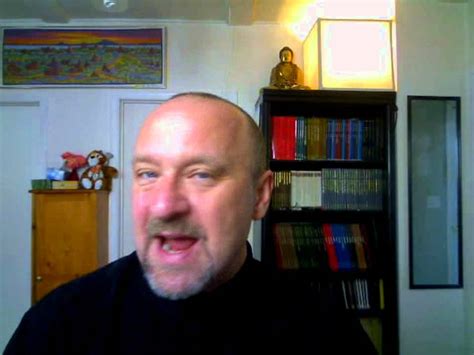A Quote by Fyodor Dostoevsky
I wanted to discuss the suffering of humanity in general, but perhaps we'd better confine ourselves to the sufferings of children.
Related Quotes
The world is full of suffering. Birth is suffering, decre- pitude is suffering, sickness and death are sufferings. To face a man of hatred is suffering, to be separated from a beloved one is suffering, to be vainly struggling to satisfy one's needs is suffering. In fact, life that is not free from desire and passion is always involved with suffering.
In verity we are the poor. This humanity we would claim for ourselves is the legacy, not only of the Enlightenment, but of the thousands and thousands of European peasants and poor townspeople who came here bringing their humanity and their sufferings with them. It is the absence of a stable upper class that is responsible for much of the vulgarity of the American scene. Should we blush before the visitor for this deficiency?
Somebody said to me the other day, 'You know, it's really senseless, what you're doing. There's always been suffering, there will always be suffering, and you're just prolonging the suffering of these children [by rescuing them].' My answer is, 'Okay, then, let's start with your grandchild. Don't buy antibiotics if it gets pneumonia. Don't take it to the hospital of it has an accident. It's against life-against humanity-to think that way.
To know the Cross is not merely to know our own sufferings. For the Cross is the sign of salvation, and no man is saved by his own sufferings. To know the Cross is to know that we are saved by the sufferings of Christ; more, it is to know the love of Christ Who underwent suffering and death in order to save us. It is, then, to know Christ.
Perhaps because the origins of a certain kind of love lie in an impulse to escape ourselves and out weaknesses by an alliance with the beautiful and noble. But if the loved ones love us back, we are forced to return to ourselves, and are hence reminded of the things that had driven us into love in the first place. Perhaps it was not love we wanted after all, perhaps it was simply someone in whom to believe, but how can we continue to believe the the beloved now that they believe in us?
If we confine ourselves to a general and distant reflection on the ills of human life, that can have no effect to prepare us for them. If by close and intense meditation we render them present and intimate to us, that is the true secret for poisoning all our pleasures, and rendering us perpetually miserable.
We have become terribly vulnerable, not because we suffer but because we have separated ourselves from each other. A patient once told me that he had tried to ignore his own suffering and the suffering of other people because he had wanted to be happy. Yet becoming numb to suffering will not make us happy. The part in us that feels suffering is the same as the part that feels joy.







































